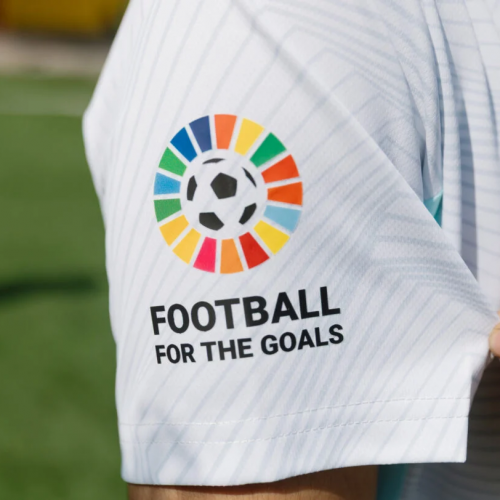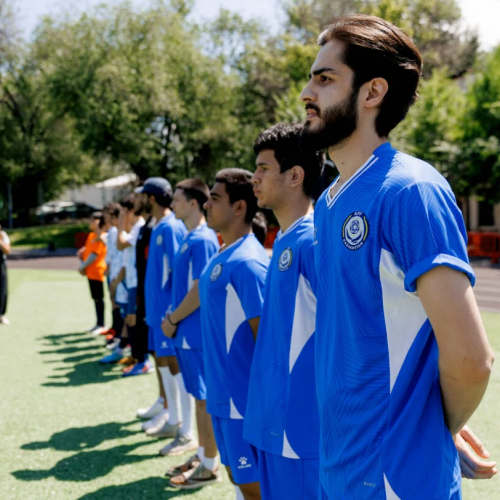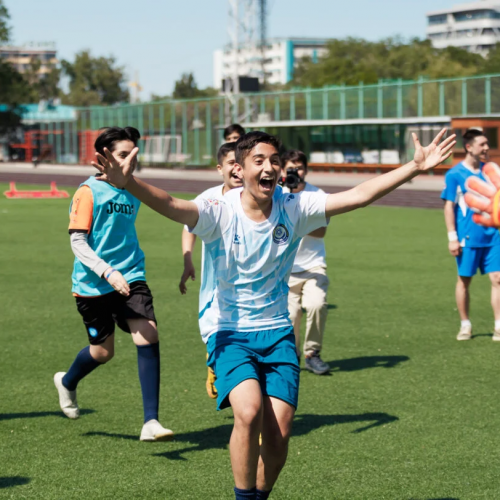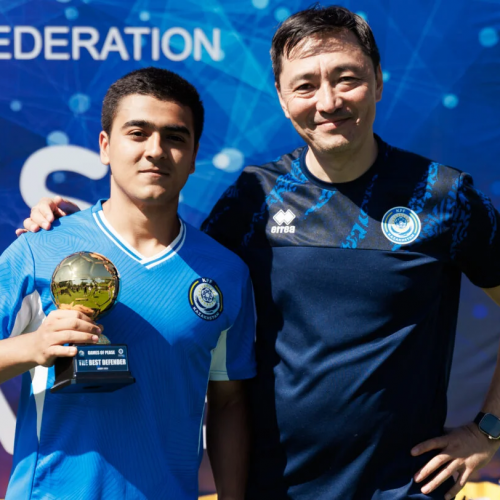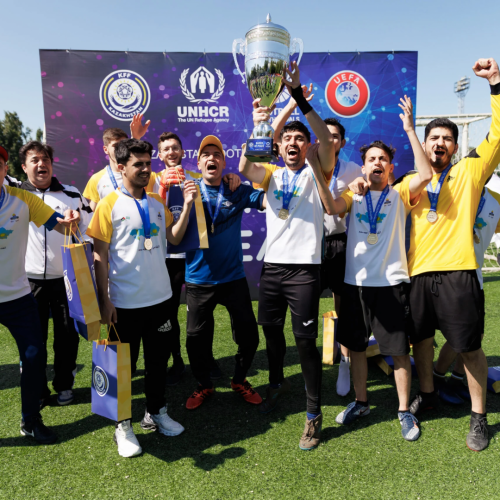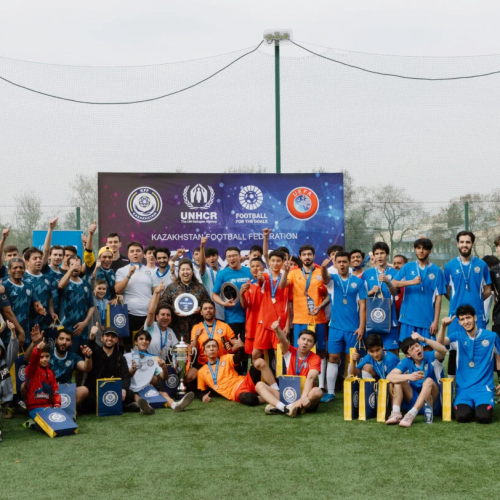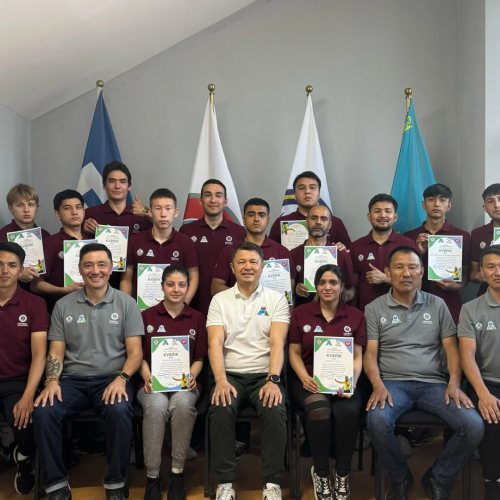More Than just a Game: How sport brings refugees and communities together
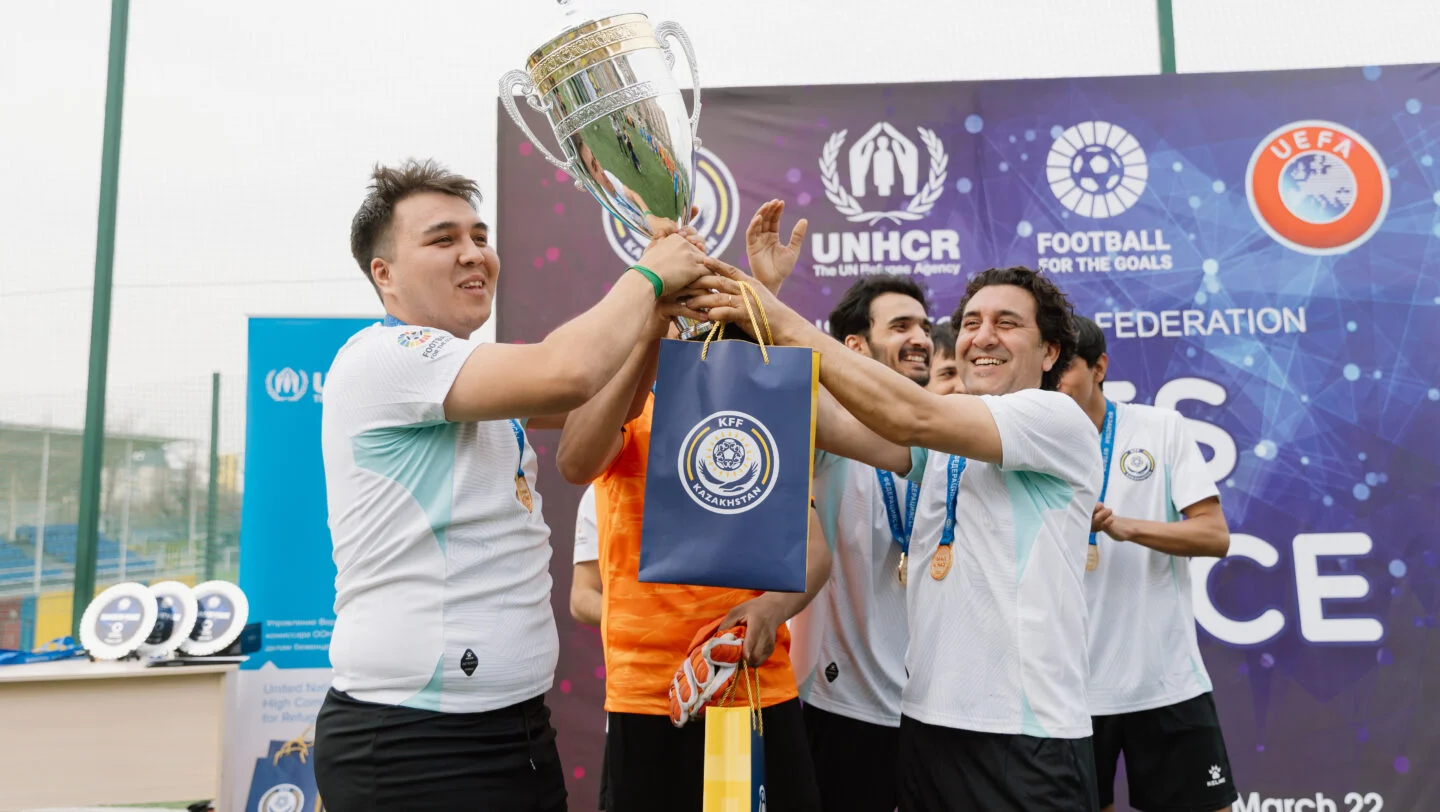
Sport has always been a universal language – one that transcends borders, cultures, and languages. It unites millions of people around the world, and for many, it’s more than just a game. It’s passion, self-expression, and a way to connect.
Farokh, a young DAFI refugee scholar studying dentistry in Kazakhstan, is one of those people.
“Football has been my passion since childhood,” says Farokh. “It’s more than just a hobby – it’s a part of who I am, a way to express myself and find real joy.”
Kazakhstan is home to more than 120 ethnic groups living together in mutual respect. It’s also home to 646 refugees and asylum-seekers as of January 2025. They speak the local languages, have family ties with citizens, and live in harmony with their communities, having integrated into the culture and daily life.
On the eve of the International Day of Living Together in Peace, refugees, asylum-seekers, and local communities came together for the second “Games of Peace” Football Tournament – a celebration of solidarity, inclusion, and hope.
“This tournament is called the ‘Games of Peace,’ and it brings together all countries and nations,” says Farokh. “Everyone comes together to play as a team, in unity and friendship.”
The event was organized by the Kazakhstan Football Federation, UNHCR, the UN Refugee Agency, and the Red Crescent Society of Kazakhstan, with support from the UEFA Refugee Grant Programme. It showcased sport as a powerful tool for social cohesion.
Six teams competed – not just for victory, but for a shared goal. The “Games of Peace” reminded everyone that sports can build bridges and foster mutual understanding, well beyond trophies or medals.
“The emotions you feel on the field – from the adrenaline to the full commitment to your team – can’t be captured on camera or put into words,” says Farokh. “I genuinely wish everyone could feel it: the competition, the thrill, and the pure joy of the game.”
The tournament followed the example of the first “Games of Peace” held in March during Nauryz – the Central Asian celebration of spring, renewal, and new beginnings.
Alongside the tournament, referee and coaching training courses were also launched. Thirteen refugees – including two women – participated and completed the courses, receiving certificates. These opportunities open doors for inclusion through sport and equip participants with the skills and knowledge.
In a world facing rising forced displacement, initiatives like the “Games of Peace” show how something as simple as football can break down barriers, build friendships, and foster peaceful coexistence.
UNHCR continues to support the Government of Kazakhstan in strengthening protection for forcibly displaced people – improving asylum procedures, aligning national legislation with international standards, and creating opportunities for refugees and asylum-seekers not only to survive, but to thrive.
Source: Organizations United Nations Refugee Agency
